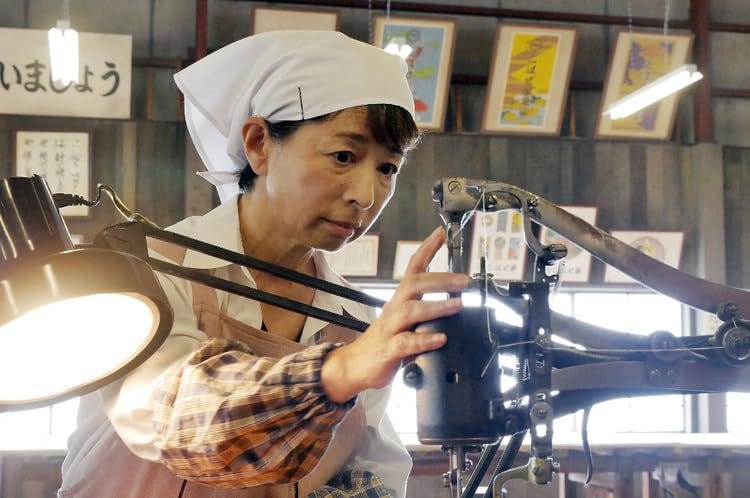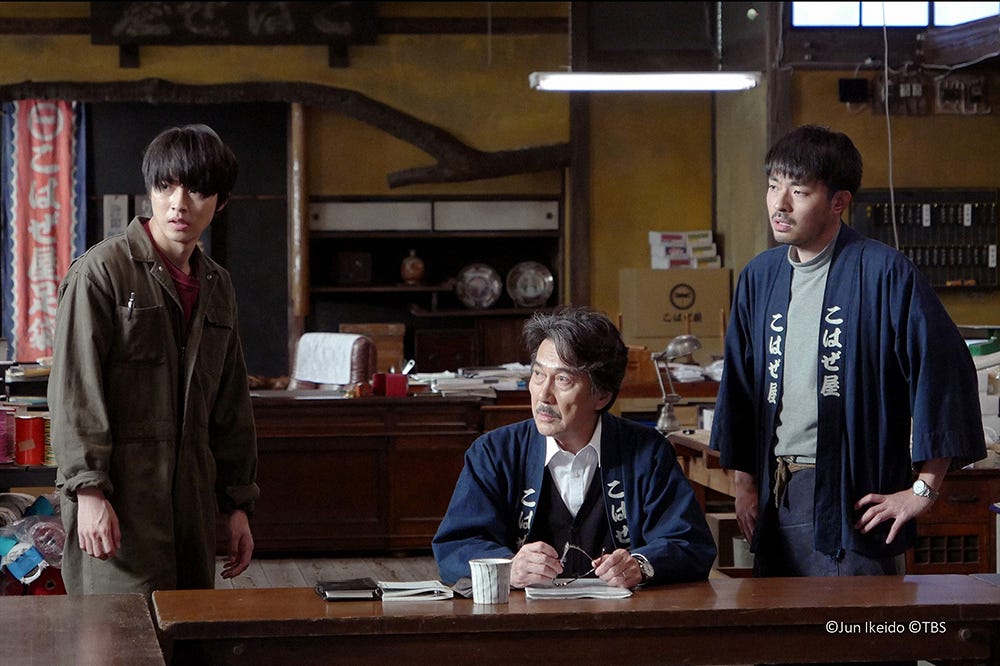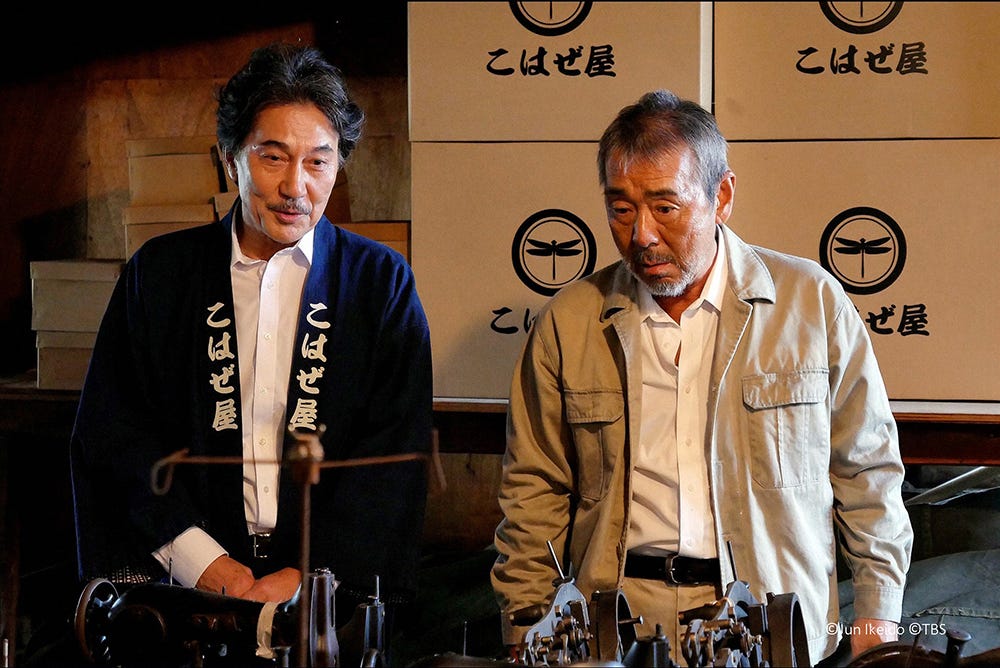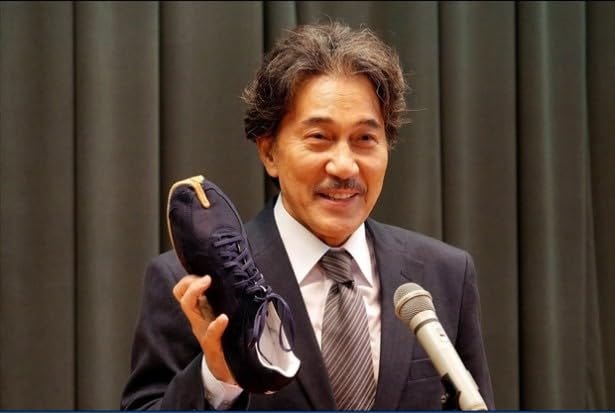陸王 Rikuo (2017)
The power of the dragonfly
Japan has an undeniable charm: the perfect mix of traditional and modern that captures people's imagination. At least so it seems from the outside. In reality, this coexistence is not smooth at all. Big cities are the heart of the Japanese economy and where the vast majority of people live. Life is convenient but expensive and stressful. If you visited Tokyo, hopefully you could find some views of the “authentic Japan" you expected, but most likely you have been overwhelmed by the sheer size of the city, buildings and amount of people cramped everywhere.
Outside the cities, life is quite simple, modest, just enough to get by. This is the Japan visitors do not see, but for many people, it is the only reality. A dying world abandoned by the youth who will chase fortune in the big city.
In this bucolic scenery, there is the Kohezaya, a family owned tabi maker. Tabi are traditional Japanese socks used when wearing kimonos. There are many unique designs, some of which include rubber soles, which can be used directly in contact with the ground (which is particularly popular with tourist porters).
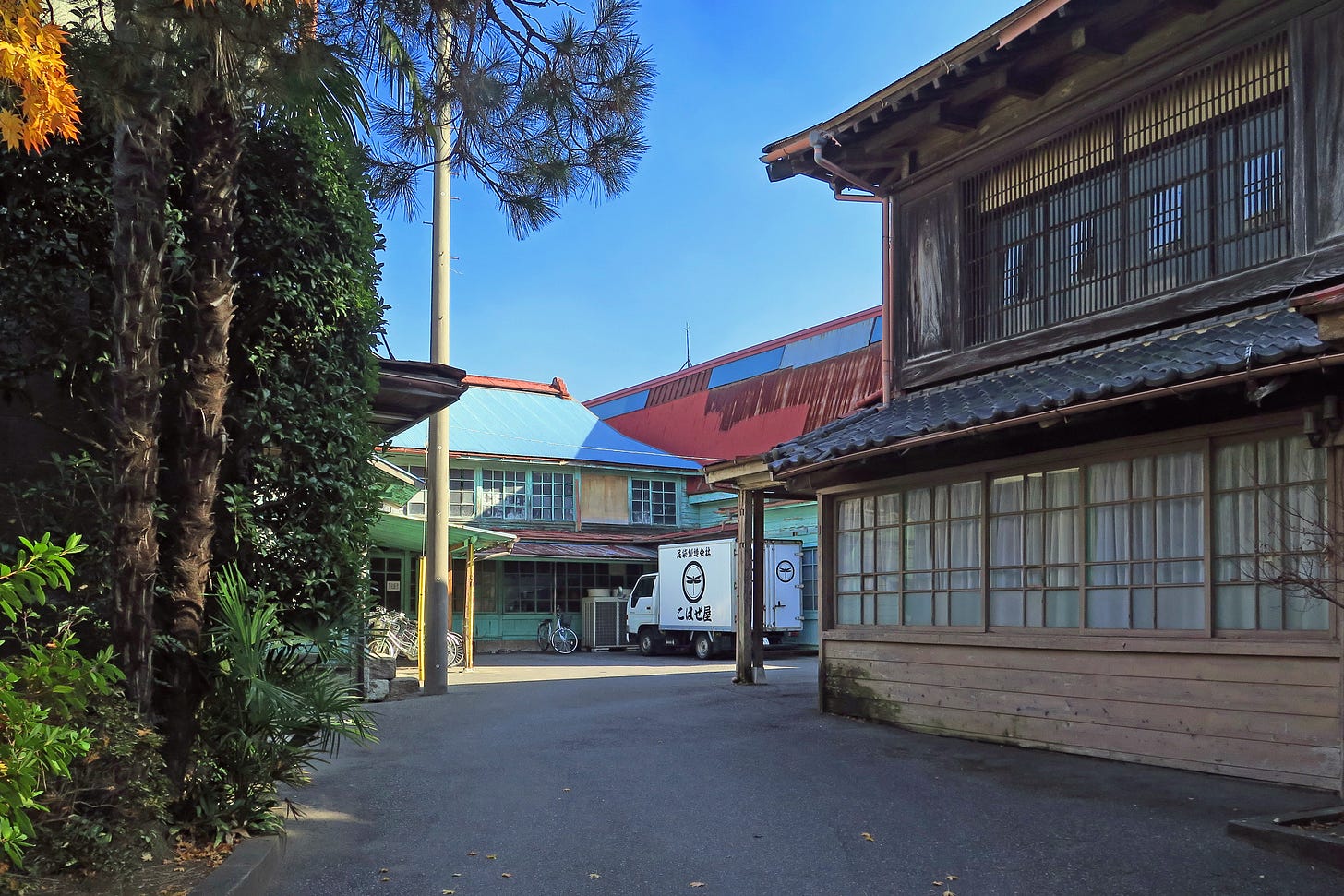
You can imagine that demand for this kind of product is not what it used to. Society has evolved, having embraced western fashion for many decades.
The factory, after more than a hundred years of activity, is in serious financial trouble. Its owner, the fourth generation of his family, faces a hard choice: lay off more workers to survive a little longer or go bankrupt. Neither feels right.
Employees are not just numbers; they are people who spent their lives in the company perfecting a craft. Their livelihood depends entirely on this and without them this art will die.
It's heartbreaking to see the protagonist get his lone request rejected in a very harsh way at the bank. He takes this as a personal failure. But when he breaks the news to his employee, he is welcomed with support. They are willing to accept pay cuts to make ends meet, to allow the company they work for and love to carry on just a bit more until things get better again. But we all know things will not get better, there will not be a sudden comeback of tabis.
Miyazawa Koichi, the company's president, will be the one remembered for ending four generations of work. He can't accept this, he can't allow it.
By chance, he finds an idea, the very last attempt to save the company or at least to have tried until the end. To avoid spoiling too much, I will just say he thinks of making a new running shoe inspired by the tabi. The idea is promising, at least on paper, but the problems to overcome to make it a reality are huge. First, the material he needs for the soles is patented, and there is no money to develop to acquire the necessary equipment to manufacture them.
He needs someone to believe in this project as much as he does. We watch closely as he struggles with frustration knowing he has a vision but lacks the means to bring it to life.
Here, Rikuo shows its strength: persistence (we would call it resilience in 2025). Never give up, even when doors are slammed in your face and even if you have to humble yourself just to get a chance. Believe in your project, for yourself and also for the responsibility you bear to others.
So far seems like the story is not about one hero, but it's more like a group story (or a family?), full of conflicts and compromises, showing that saving a company does not depend on a single genius, but on the ability of a group to resist and adapt.
Another "unusual" thing, at least in our modern consumerist society, is how much attention is given to the product itself. The shoes are being made by hand, every single detail cared for. The gestures, the materials, the repeated movements that become tradition make the story feel real and close to home. The tiniest defect is not accepted, their reputation is at stake, and they take pride in their work.
This reminds me how in Italy, especially in the North where I am from, something similar has happened. Family-owned textile and shoemaker with 50+ years of history close down, while new fast-fashion retail shops open. It's sad to see the crafts that made the “made in Italy” reputation disappear under competition that cares only about profits, not quality. It seems a paradox: we see the value of well-made products, yet we often run to cheaper, faster alternatives, even if they last half as long. Is that economically responsible? I don't know.
Back to Rikuo, in the story, the happy ending comes (I will not say how, but you can imagine). But the bitterness for me did not go away: the system that almost destroyed the company is still there. Is this really the society we want to live in? Maybe the strongest takeaway is that success does not erase fragility and tomorrow, things could still collapse.
In the end, Rikuo is more than a series about a socks/shoes factory. It reflects on the value of tradition in a world that no longer recognizes it, the pride of craftsmanship against standardization, and the dignity of people who refuse to give up. Most of all, it speaks to anyone, in Japan or Italy or anywhere else, who has seen a piece of culture crumble under the weight of modern life.
Enjoyed the article? Keep my brain fueled—buy me a coffee!



